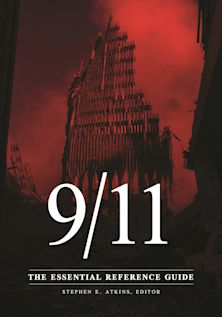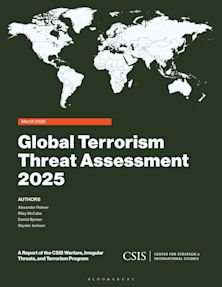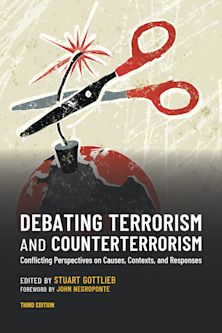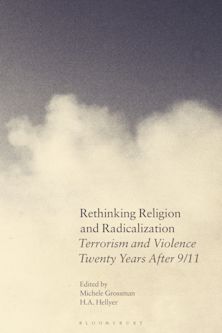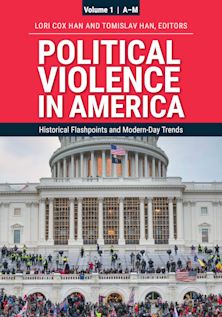- Home
- ACADEMIC
- Politics & International Relations
- Terrorism and Political Violence
- Terrorist Recruitment of U.S. Gangs
Terrorist Recruitment of U.S. Gangs
Global Criminal Alliances and Biological Weapons
Terrorist Recruitment of U.S. Gangs
Global Criminal Alliances and Biological Weapons
This product is usually dispatched within 1 week
- Delivery and returns info
-
Free US delivery on orders $35 or over
You must sign in to add this item to your wishlist. Please sign in or create an account
Description
Since the September 11, 2001 US-Terrorist Attacks there has been an overwhelming increase in documented cases of violent acts of extremism made possible by radical terrorist recruitment of domestic gangs. These new, global criminal alliances combine tech-savvy radical extremists and the local knowledge and manpower of U.S.-based gangs creating a greater potential for biological attacks. As a result, both law enforcement and intelligence agencies have been forced to align their coordination efforts to a greater extent with colleges, universities, private infrastructures, and the military to shift national security efforts from reactive to proactive. D. Darell Dones examines the parallel terrorist-gang activities and prevailing psychosocial factors that explain the varying radical beliefs, causations, and behavioral mindset of these criminal partnerships.
Table of Contents
Chapter 2: History of Gangs, Terrorism, and WMD
Chapter 3: Mixed Methodology
Chapter 4: Results
Chapter 5: Future Developments
Product details
| Published | Nov 11 2019 |
|---|---|
| Format | Hardback |
| Edition | 1st |
| Extent | 166 |
| ISBN | 9781498594417 |
| Imprint | Lexington Books |
| Illustrations | 7 tables; |
| Dimensions | 9 x 6 inches |
| Publisher | Bloomsbury Publishing |
About the contributors
Reviews
-
An awareness of the crime-terror nexus is critical if U.S. communities are to improve their responsiveness and overall effectiveness in combating the expanding global problem of crime and terrorism. There is a lack of consensus for much of the current insight into criminal-terrorist connections. What is fairly clear is that there is an underlying basis for criminal and terrorist group relationships. The motives, environments, and conditions that may manifest the formation, transformation, or integration of criminal and terrorist groups are divergent and subject to change according to group intentions, needs and opportunities. Collaboration and coordination can serve as force multipliers for both criminal and terrorist groups by combining and enhancing capabilities, strengthening infrastructures, or fulfilling common dependencies on operational necessities. The linkages between criminal and terrorist groups allow terror networks to expand and undertake attacks by leveraging criminal sources. Underestimating or failing to account for such potential bonds can prove to be disastrous and catastrophic. Dr. Darell Dones compellingly addresses a unique and critical awareness.
Delmar P. Wright, Saint Leo University
-
In this book, Dr. Darell Dones examines how international actors (Al-Qaeda, the Taliban, or ISIS) might join with domestic groups (such as street gangs or MS-13) or lone-wolf actors, to produce a mass casualty event. His book examines whether terrorist groups have the capability to recruit and employ U.S. gangs to carry out terrorist attacks. His book notes that gang activity in the U.S. is not a new phenomenon. However, the possibility of the recruitment of gangs for terrorist acts is a new trend. This makes this book timely and relevant.
Dr. Darell Dones was a Supervising Special Agent in the FBI. He served in the Behavioral Science Unit in the Critical Incident Response Group at the FBI Academy in Quantico, Virginia. He is a specialist on gangs and terrorism. Dr. Dones was responsible for conducting criminal research while serving in the FBI. He worked with academics, as well as other law enforcement, military, and intelligence agencies. He focused on criminal predictors for violent criminal organizations. This was based upon their history, methodology, ideology, and individual personalities. He was also a military officer. His experience is the perfect background for this analysis of nuclear, biological, and chemical terrorism.George C. Klein, Oakton Community College, professor emeritus

ONLINE RESOURCES
Bloomsbury Collections
This book is available on Bloomsbury Collections where your library has access.















